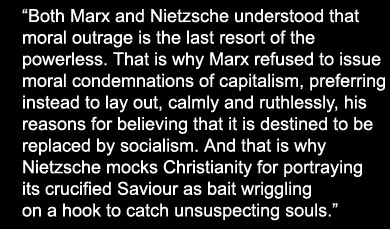I grew up reading feats of military derring-do, and watching films like “Seven Samurai” and “Harakiri” – books and movies about martial glory and the character of the warrior. I noticed early on that a big piece of military glory and heroism is the stand against great odds – the acceptance that one’s mission will probably cost one’s life, but that’s a secondary concern: doing the right thing matters more. I read a lot about the samurai and bushido, and I always deeply felt the distinction between katsujin ken (the life-giving sword) and setsunin-to (the life-taking sword). Somehow it all ties together in my formative anarchy as part of something basically anti-authoritarian, because the authority and the establishment usually are the “powers that be” against which the life-giving sword must work.


